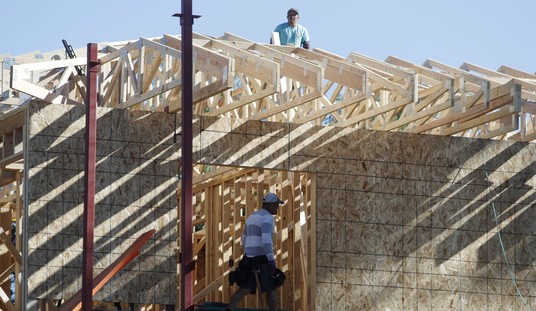
Both as a candidate and as President, Donald J. Trump has frequently and famously argued for “America first” economic and trade policies that help the very American workers who put him in office. The political class has largely opposed his anti-NAFTA rhetoric and his scuttling of the Trans-Pacific Partnership. And presently he’s facing criticism for his steel and aluminum tariffs.
It’s interesting to note that under President Trump the economy is roaring at a pace we haven’t seen in years. Perhaps the political class doesn’t know what it’s talking about. Members of the political class tend to seek approval from their credentialed peers. Trump – and the voters he represents – seem much more interested in real world results.
The President has another opportunity to defend American industry against foreign competitors who don’t play fair. The air conditioning industry was invented in the United States — Buffalo, NY in 1903. Ever since, the U.S. has dominated the air conditioning and coolant industry throughout the world.
But treaties and agreements that long-predate the Trump presidency (in fact, it all got started under President Ronald Reagan) threaten to undermine America’s global position in this space. The Kigali amendment to the Montreal Protocol sounds threatening. But if President Trump were to send it to the Senate for ratification, it would strengthen the U.S. coolant industry. As New Hampshire Trump activist Paul Nagy recently wrote in the New Hampshire Union Leader:
Because of international agreements going as far back as President Ronald Reagan’s administration, the American cooling and heating industry is going to be hamstrung with limited access to global markets. Chinese cooling companies are going to be able to dump literally millions of tons of inferior, dirtier product into our market. This is a serious threat. Just last year, the U.S. International Trade Commission found that U.S. companies had been “materially injured” by Chinese companies dumping cheap refrigerants in the U.S.
Here’s the good news. President Donald Trump loves to see American industry win. It’s one of the main reasons I backed him so proudly during the primary. He can fix it all by sending something called the Kigali Amendment to the Senate for ratification. Support for the Kigali Amendment is consistent with President Trump’s overall job strategy aimed at bringing manufacturing jobs back to America. And every economic indicator demonstrates that the President’s strategy is working as the economy is strong and good paying manufacturing jobs are growing.
The Kigali Amendment would phase out environmentally harmful coolants. This would have the effect of opening global markets to new, less harmful coolants made right here in the U.S.A., creating more jobs in New Hampshire and across the nation.
The National Association of Manufacturers highlights a recent study showing the significant positive economic impact if the U.S. ratifies Kigali:
Today’s report concludes that ratification of the Kigali Amendment would have a substantially positive economic impact on a wide range of sectors. Heating, ventilation, air conditioning and refrigeration sectors would create 17 percent more jobs (33,000 jobs) by 2027 if the Kigali Amendment were ratified versus a scenario where it does not go into effect. When indirect and induced jobs are factored in, the total potential jobs increase goes up to 150,000.
But wouldn’t a phase out of AC units drive up costs for consumers? Not really. That’s because units will not have to be replaced on a date certain, but rather when they reach their natural obsolescence. As President Trump’s former adviser on international energy and environment policy, David Banks explains:
Arguments that Kigali ratification might harm consumers are not well grounded. A predictable timeline for implementing the amendment would produce market stability and an outcome that would possibly eliminate any incremental costs to the consumer – a transition similar to flat screen televisions and cell phones. Consumer impacts would also be offset by energy efficiency gains, saving consumers money over the lifespan of new equipment.
In any case, the president’s trade strategy, as we have seen repeated time and again with the imposition of tariffs, is driven by domestic job creation and preservation of the U.S. industrial base – not by consumer impacts. The president believes strongly that U.S. manufacturing strength and long-term economic health should not be traded away so that Americans can buy cheaper products in the short run.
There are some Conservatives who oppose Kigali on ideological grounds. But many of the President’s supporters in Trump world appear to support it because it’s good for America and will help to manifest the president’s vision.














Join the conversation as a VIP Member